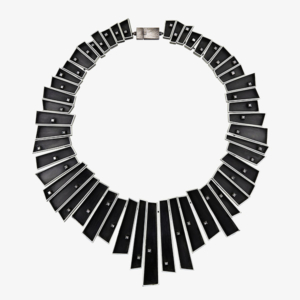
Mall developer Macerich announced Thursday that it’s sold its Paradise Valley Mall property in Phoenix for $100 million to a newly formed joint venture with an affiliate of RED Development, a Phoenix-based mixed-use real estate company.
The transaction closed March 29 and generated $95 million in net proceeds for Macerich, which will retain a 5% joint venture interest in a multiyear, multiphased project led by RED Development.
Paradise Valley Mall, which was built in the 1970s, has been rezoned “to better reflect local demand for a wider mix of offerings on the 92-acre site,” according to a Macerich statement. Its future will include a high-end grocery store, restaurants, multifamily residences, offices, and retail shops.
Most of the center will be closed during the next few months to begin the redevelopment, but Costco, J.C. Penney, a branch of the Phoenix Public Library, and a mass transit station at the site will remain open.
“As the retail landscape continues to evolve here in Arizona and around the country, our decision to realize the market value of this non–core asset makes sense for Macerich,” said Ed Coppola, president of Macerich, in the same statement. “Our focus remains on Macerich’s top-tier, market-dominant properties.”
Macerich owns 47 regional shopping centers, and considered Paradise Valley Mall (a center with a name straight out of Fast Times at Ridgemont High) a “non-core” property.
As indoor shopping malls continue to see plummeting foot traffic, exacerbated by the COVID-19 pandemic, and centers in general are challenged by the shift in consumer spending to online, mall developers have been actively searching for ways to diversify their properties.
U.K.-based developer Unibail-Rodamco-Westfield, for example, is expanding its Bethesda, Md., indoor mall to include a sprawling, village-style outdoor shopping and living area. The property will include stores, but also a woonerf—the Dutch term for a walkable street—a 135,492-square-foot fitness center, a bike path, and 413 residences.
But while some mall developers have—or can raise—the capital for such pricey transformations, financially struggling developers won’t be as nimble and are expected to eventually shutter. Retail analytics firm Coresight Research forecasts that 25% of the roughly 1,000 malls in the U.S. will close by 2025.
The consolidation of physical retail is already underway, nudged along by the constriction of anchors stores such as J.C. Penney and Macy’s, whose giant retail shells, once empty, are being repurposed for non-retail uses. A former Macy’s in Vermont has been turned into a school. So really, all options are on the table.
Top: A preliminary rendering of Paradise Valley Mall’s future state (illustration courtesy of Macerich)
Follow Emili Vesilind on Instagram: @emilivesilind
Follow JCK on Instagram: @jckmagazineFollow JCK on Twitter: @jckmagazine
Follow JCK on Facebook: @jckmagazine






